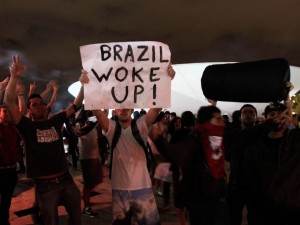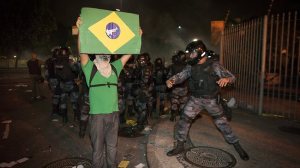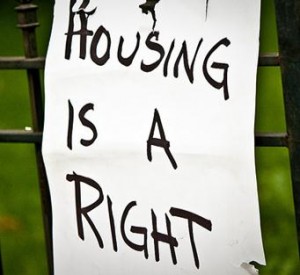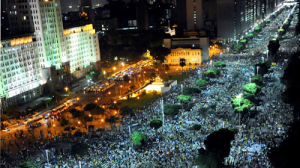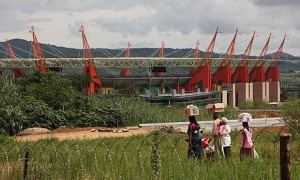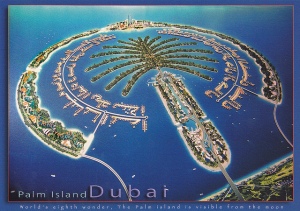Happy New Year! 2014 is already looking up for some
Happy New Year. Hope that the holidays were kind to you.
I briefly went on the National Geographic website not really looking for anything when I came across an article about Intel’s “promise” to ban “conflict minerals.” This is a HUGE first step to improving the lives of thousands of people, maybe millions. Because this can set the example for other companies that profit from violence and instability. This announcement came from Intel’s CEO, Brian Krzanich, who has only been on the job for six months. Is well informed about the supply chain from the mining field to the production factories, since he was in charge of all of Intel’s supply chain.
This announcement made by Mr. Krzanich represents a step in the right direction following SEC’s adoption of a rule mandated by the Dodd-Frank Wall Street Reform and Consumer Protection Act, which now requires U.S. companies to disclose the use of conflict minerals sourced from the Democratic Republic of Congo and surrounding countries.
I was glad to see that Mr. Krzanich’s initial reaction was to completely stop using minerals from the DRC and other surrounding areas. Which would have resulted in Intel only using minerals from conflict-free areas. But this idea was immediately disregarded by the supply chain team, do to the notion that this decision would eliminate a key source of income for local residents. So in 2012 Intel decided to only use minerals taken conflict-free areas by 2013.
The minerals that are required for the microprocessors include tantalum, tungsten, gold, and tin. Tantalum being the most important in this situation. Intel is the worlds number one commercial consumer of tantalum, so it is no surprise that it has the most power to change the market.
It took two years for Intel to follow the supply chain, from an actual electronic product to the smelters. And it can now proudly say that all the minerals in their microprocessors are conflict-free.
When writing this post I ran across Enough Project, which is an organization dedicated in fighting genocide and crimes against humanity. The have a list that was finalized in 2012 that lists all the major companies that provide us with electronics and how they rank against each other, regarding the use of conflict minerals. Intel takes the top spot on their list; you can find the list here.
Intel claims that all the conflict-free areas have been looked over by a third party. “You’re really going like a plumber into the depths of these smelters,” explains Sasha Lezhnev, policy director at the Enough Project, which works with Intel on its conflict-free sourcing. “These are highly secretive industries. They’re just not used to public scrutiny. This is just an organizational and cultural change that they in some senses have to react to.”
And just in case you were worried about the price electric gadgets increasing due to this great new step; that will not happen. Mr. Krzanich confirmed that the company decision will not affect prices of gadgets, the only results are pricey airfare and more manpower. So why did this take so long?
Below is a video put together by Intel about the Democratic Republic of Congo, the people there, minerals and much more relating to the matter. It is a good starting point.
————————————————————————————————————————
Below you will find a copy of the article from the National Geographic.
Intel’s Ban on Conflict Minerals Wows National Geographic Photographer
Marcus Bleasdale has spent a decade documenting brutal conditions in eastern Congo’s mines. He calls the Intel announcement “huge.”

Miners eating lunch from a communal bowl in the mining town of Pluto in Ituri Province.
Photograph by Marcus Bleasdale, National Geographic
Published January 9, 2014
Intel’s announcement that every microprocessor that it ships will be made without conflict minerals from Africa hit both a personal and professional nerve for photographer Marcus Bleasdale.
Bleasdale has spent the past decade photographing in the Democratic Republic of the Congo (DRC) to bring the issue to the world’s eyes: workers, including children, toiling in brutal conditions in mines overseen by militias in eastern Congo. In October National Geographic magazine published “The Price of Precious,” which featured Bleasdale’s powerful photos dramatizing the suffering of people caught in the middle of the violent, illegal grab for minerals like tin, tungsten, and gold. They’re referred to as “conflict minerals” because of the ongoing strife between army commanders and militia chiefs over control of the mines.
Intel CEO Brian Krzanich said the company’s action is the culmination of years of effort to track down the smelters, more than 60 in all, that provide the company with minerals such as tantalum, tungsten, gold, and tin and then auditing them for where the minerals came from. The result is that, now, all the smelters that Intel contracts with use minerals from mines not involved in the DRC conflict.
National Geographic spoke with Bleasdale in Washington, D.C.
What was your reaction to the Intel announcement?
It was: “Wow!” I have been working closely with the Enough Project to find ways to engage companies on the issue of using conflict minerals, but I didn’t expect such a significant action. Intel is one of the world’s largest manufacturers of microprocessors. What they did is huge. It gives the effort momentum. Almost one-fourth of the smelters used by electronic companies have been audited as conflict-free. Plus, more and bigger mines in the DRC are coming on tap as certified conflict-free.
There are so many players in this; it is so complex. Conflict minerals are not like diamonds that are relatively easy to source. We need a tracking system.
It must be gratifying to know that your photography has played a role in creating public pressure for such an action.
Let me say that an individual photograph can have a powerful impact. But the real power is what you do with it and whom you partner with. By working with Human Rights Watch, beginning in 2004, my work hit a nerve and was instrumental, for instance, in making a Swiss company stop buying Congolese gold.
What has the response been to your photos in our October issue?
The response has been massive. I have been surprised by how many people were not aware of where the minerals in their cell phones and computers and other electronics came from. I know the article will also engage industries, and there are hundreds of them that use these minerals.
I have also been amazed by the reaction to “The Moment,” a page in the back of the magazine with a photograph of a child’s funeral at the St. Kizito orphanage in the Congo. As a result of that picture, tens of thousands of dollars in donations to the orphanage have come in, from donors ranging from a media company in L.A. to a law firm in Oslo where I recently spoke. Every cent donated has been spent by the orphanage for the children.
Why do photographs have this potency?
With every conflict it is very difficult to show the enormity of the suffering. You have all these statistics, 4.5 million people killed, 30,000 women raped. To get through to people you have to show individuals touched by the conflict. That’s how you engage people, how you shock them to maybe change their behavior. I want to repeat, though: It’s difficult for photographs to do this work on their own. You need an advocacy group to partner with who can knock on the doors of Congress and corporations. This advocacy work is as satisfying to me as taking a photograph. (Related: “Marcus Bleasedale on Shock and Change.”)
It sounds like a personal brand of photojournalism.
Objectivity is important to me. But when you face such horrific suffering and you know that it’s fueled in great part by [the] conflict minerals industry, you want it to stop; you are human and say it has to stop.
——————-
For those who hope for a better world. This should be a sort feel like a step in the right direction.
Again Happy New Year
Peace
